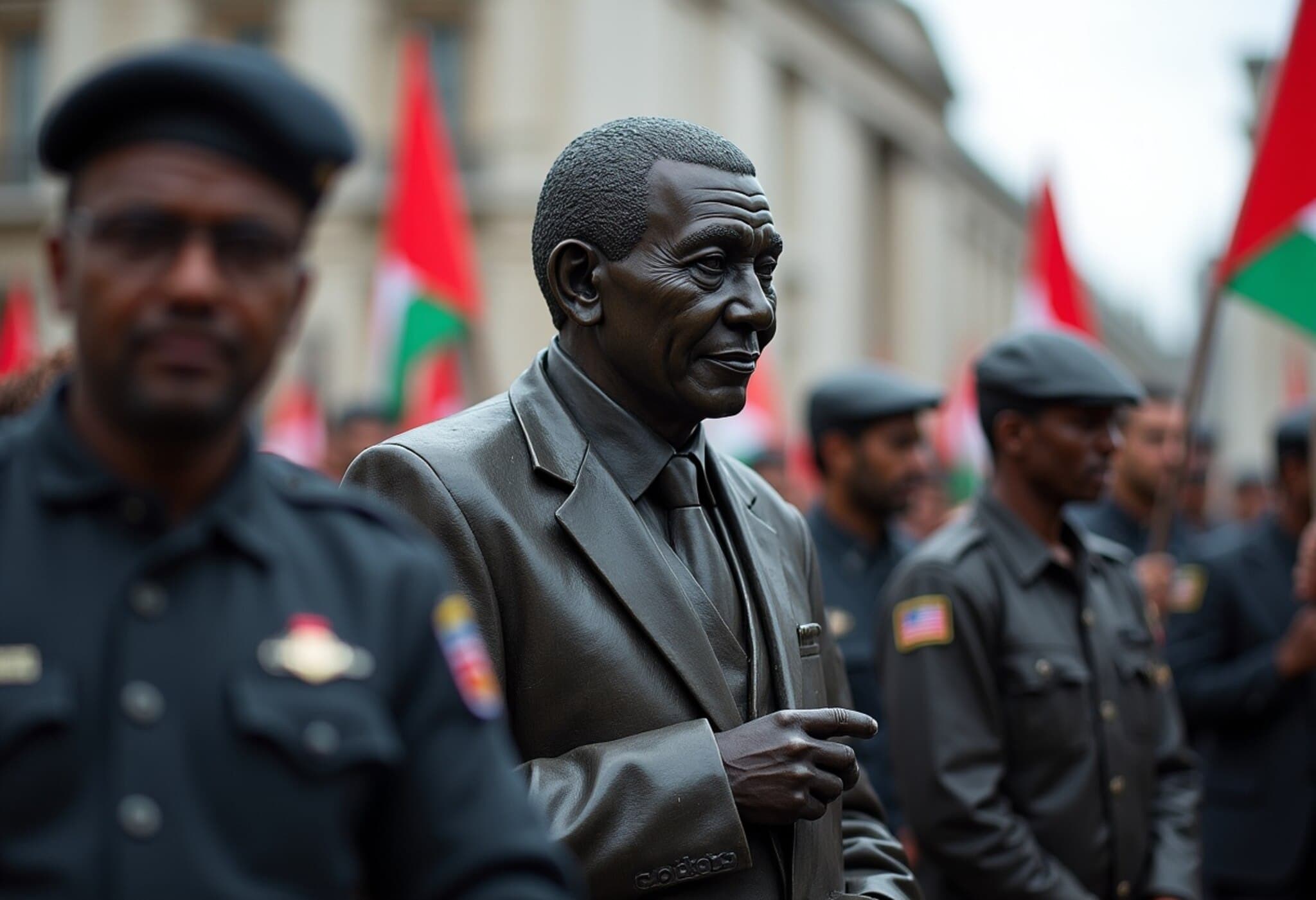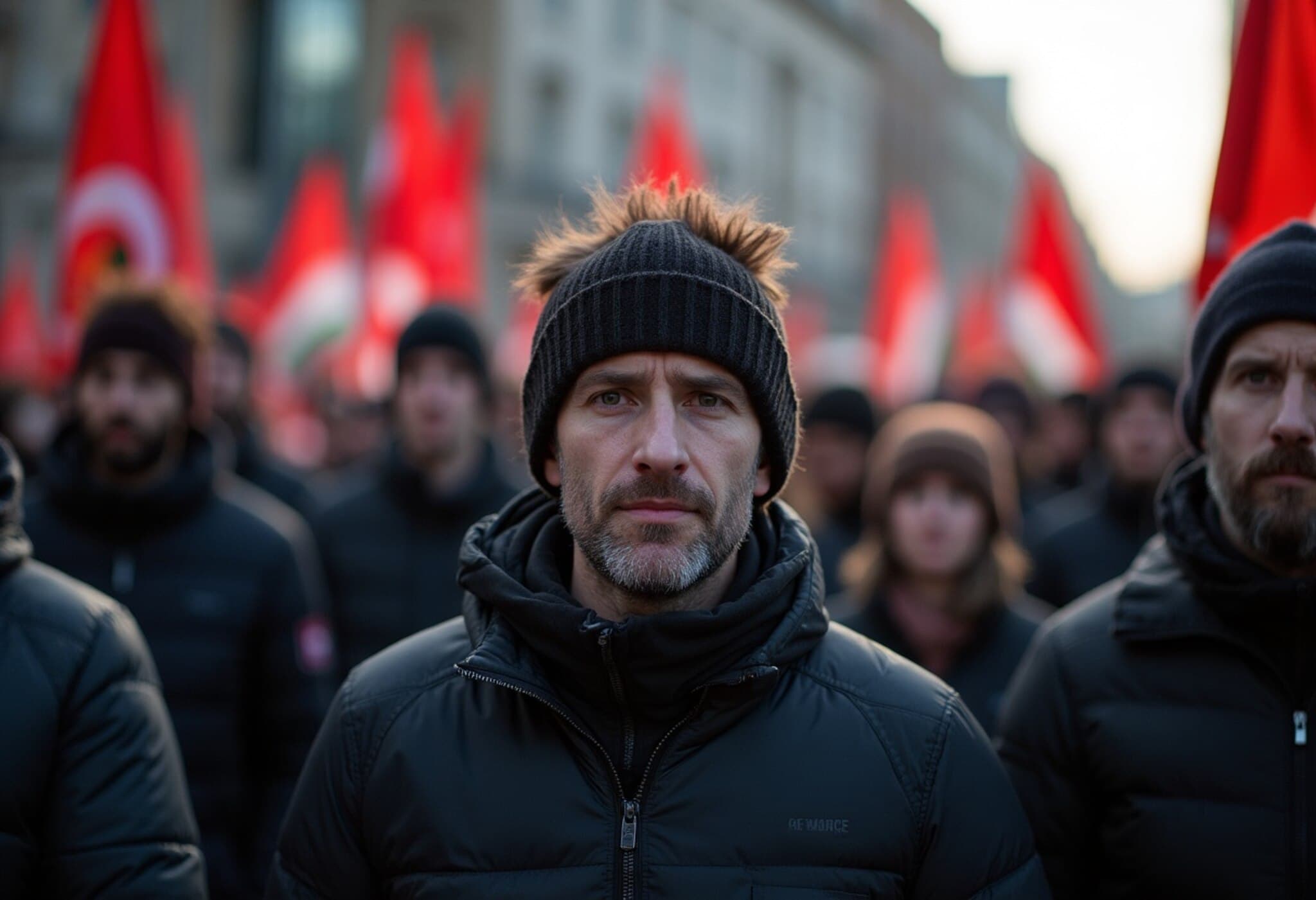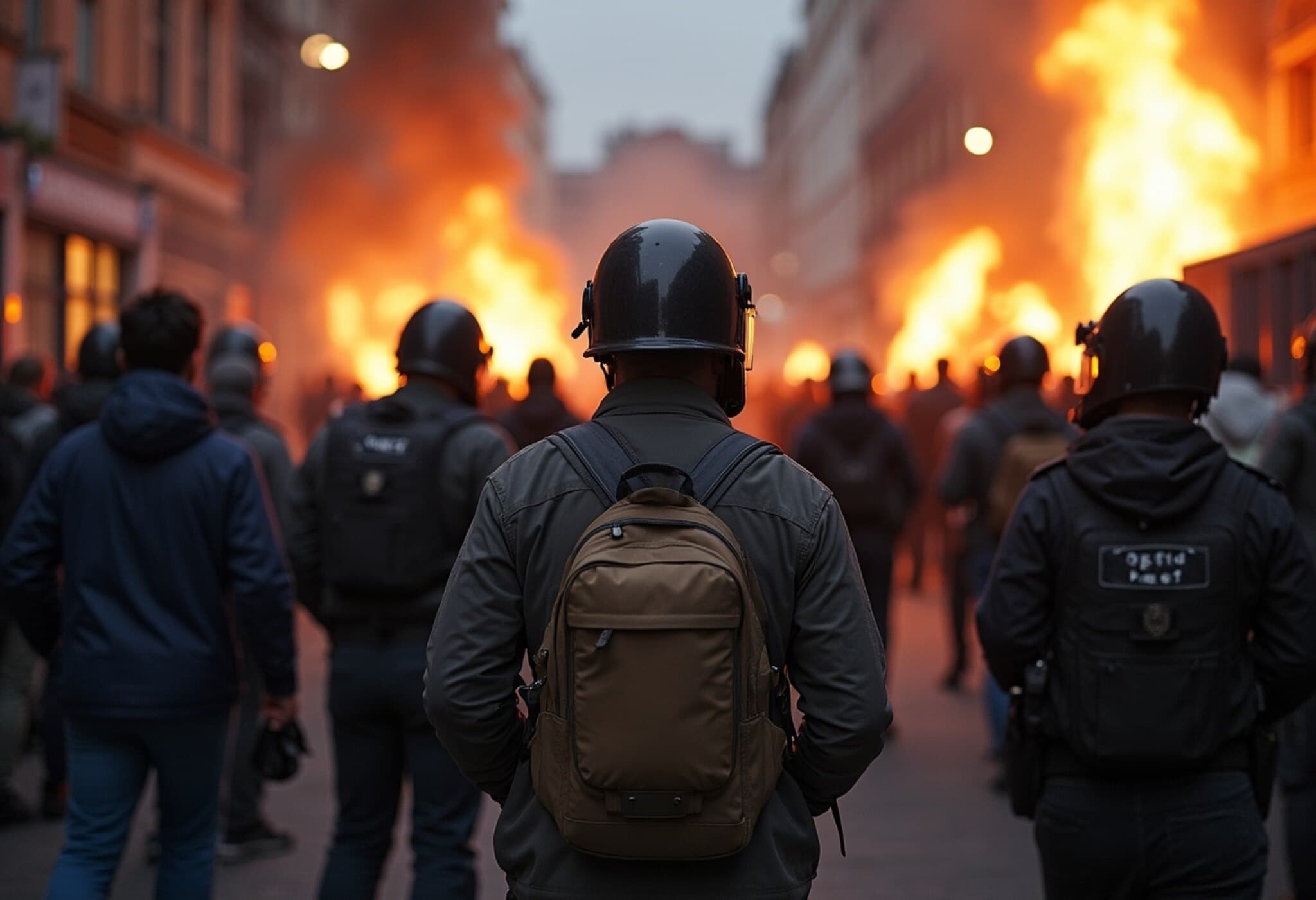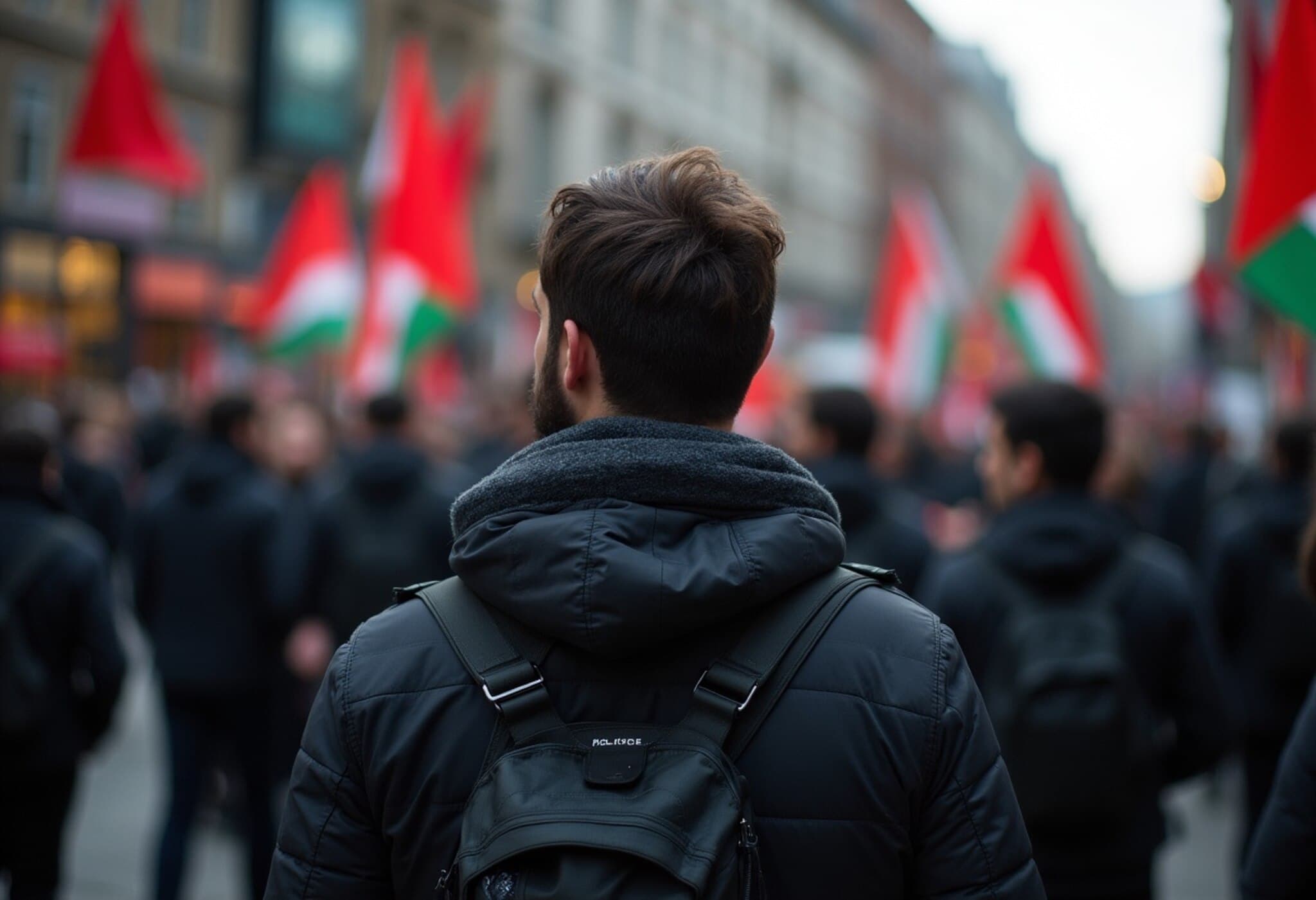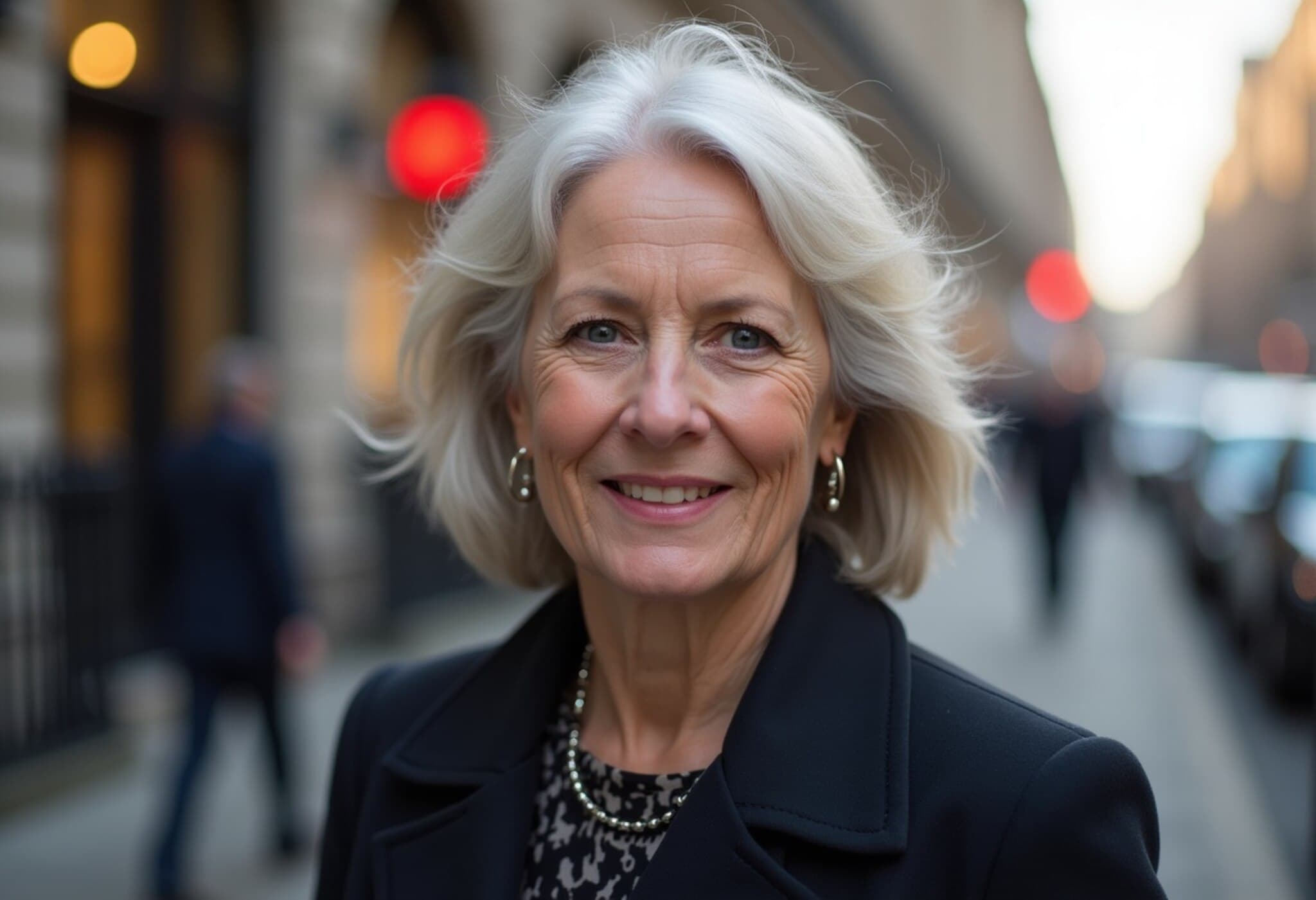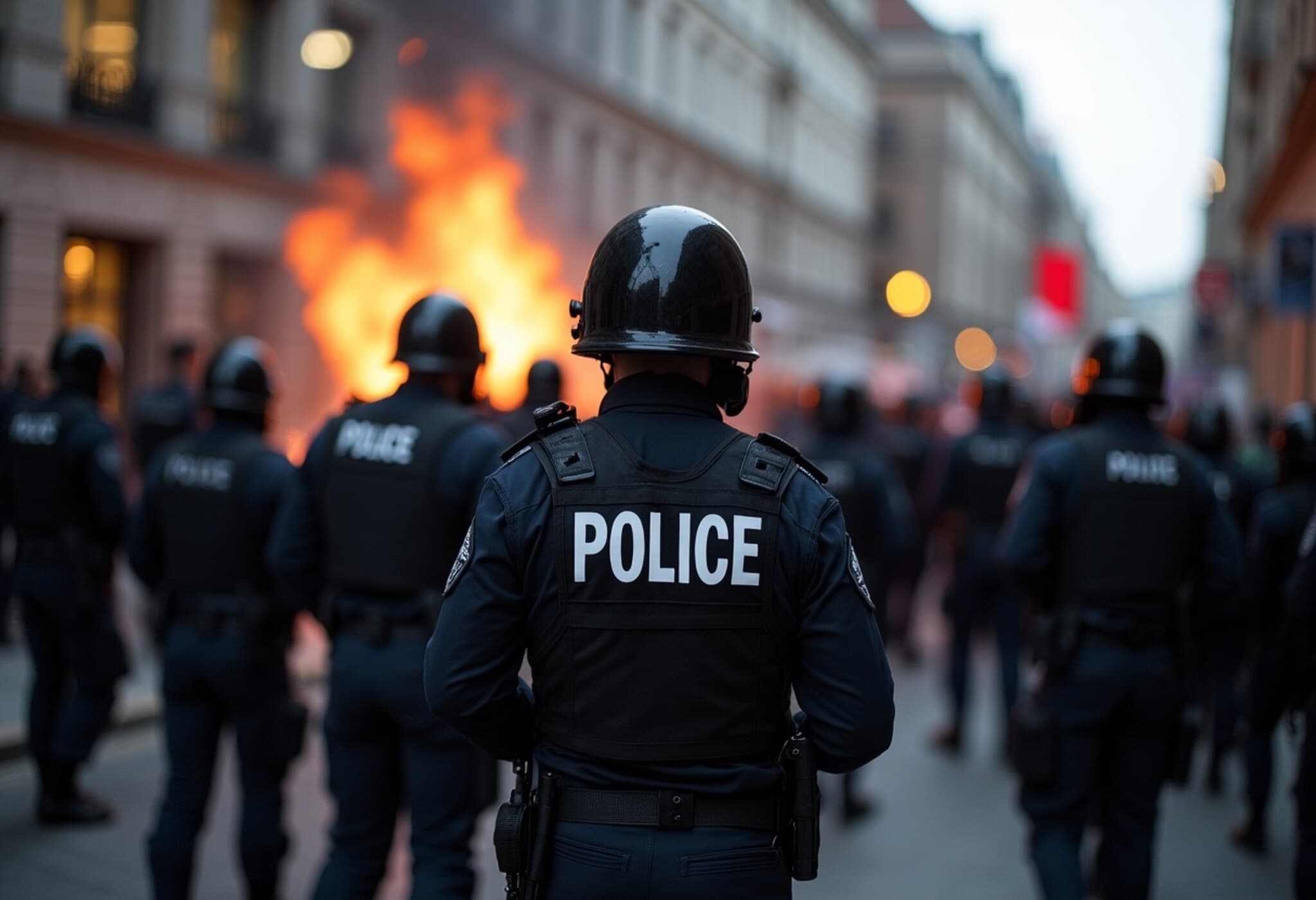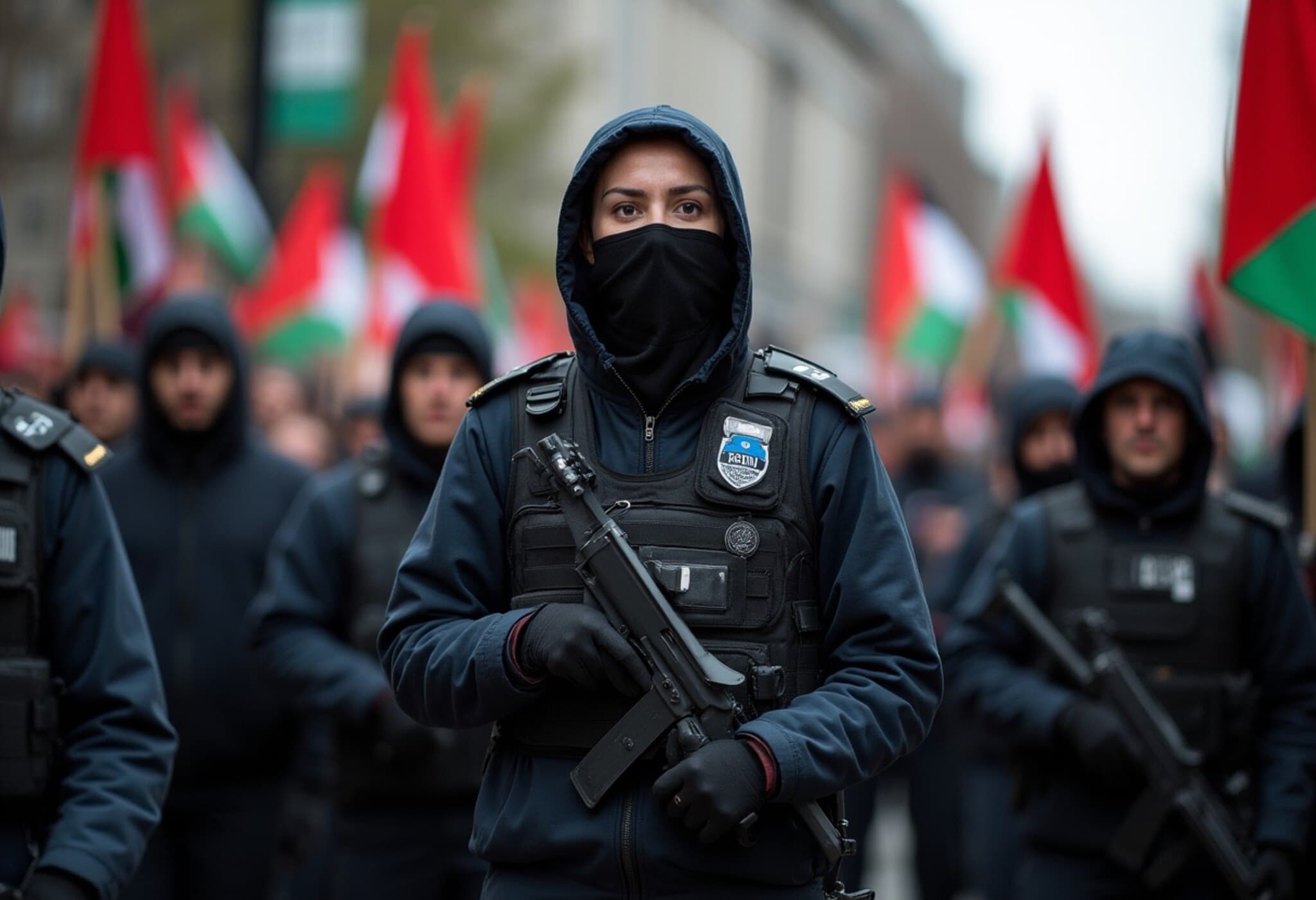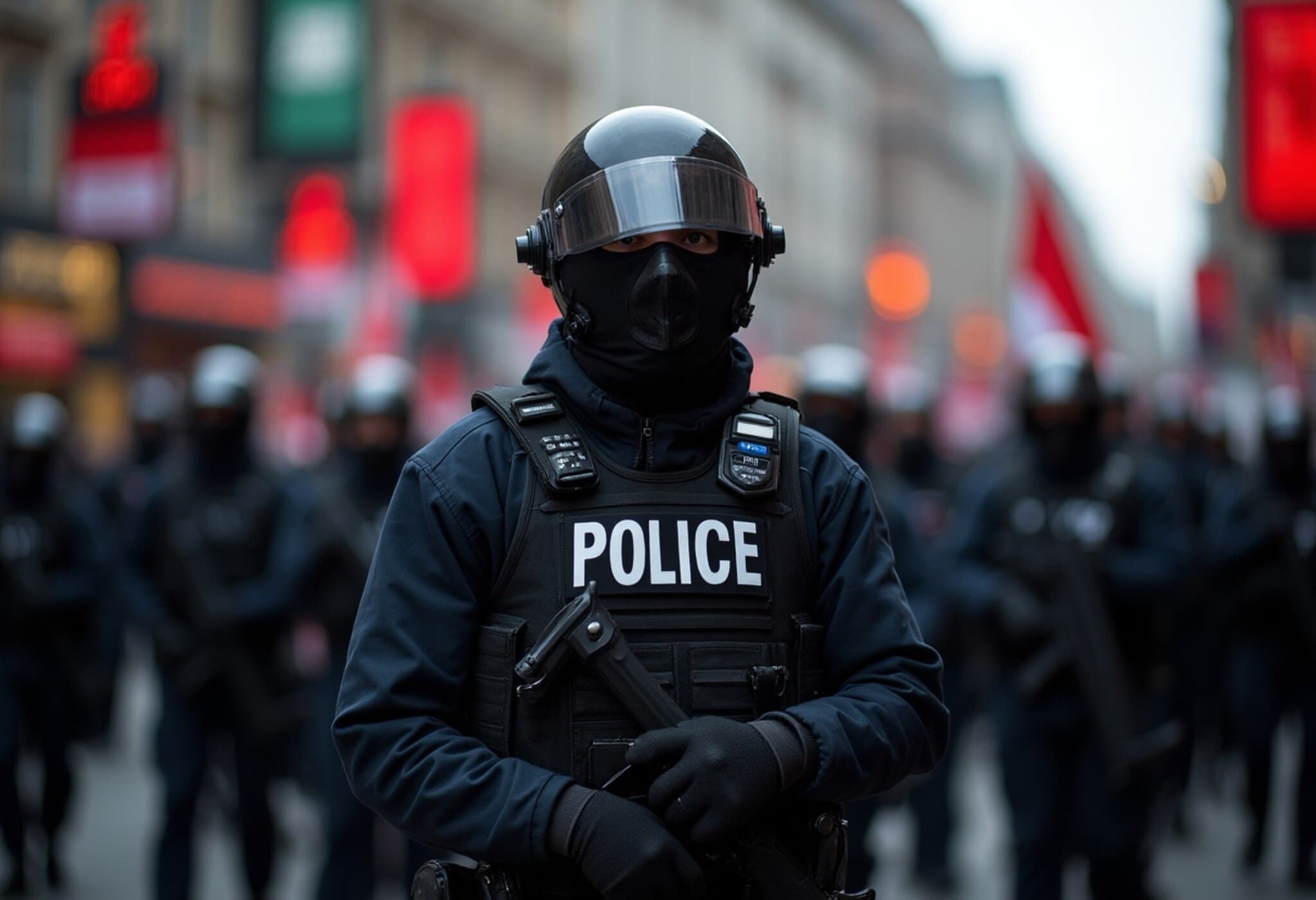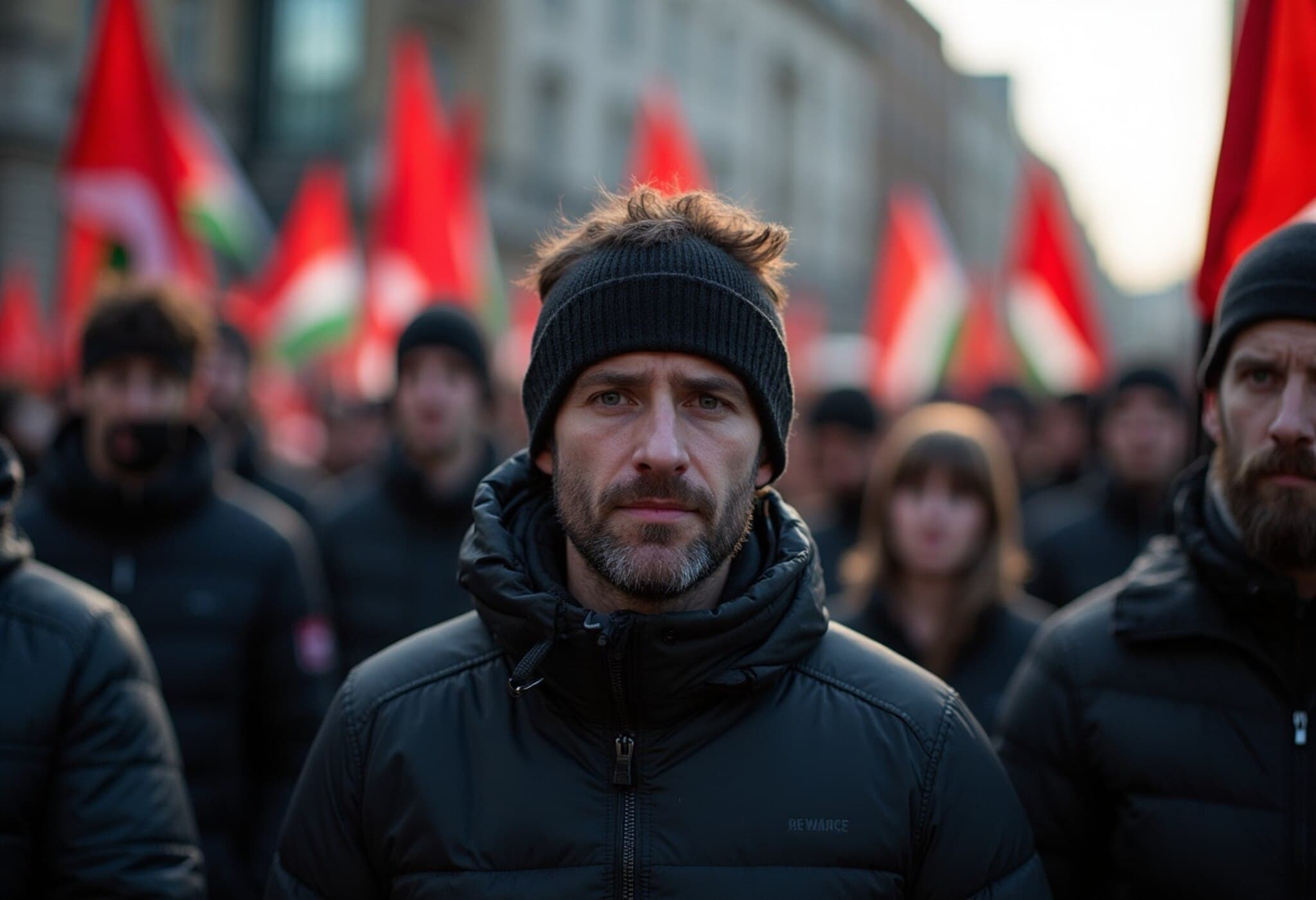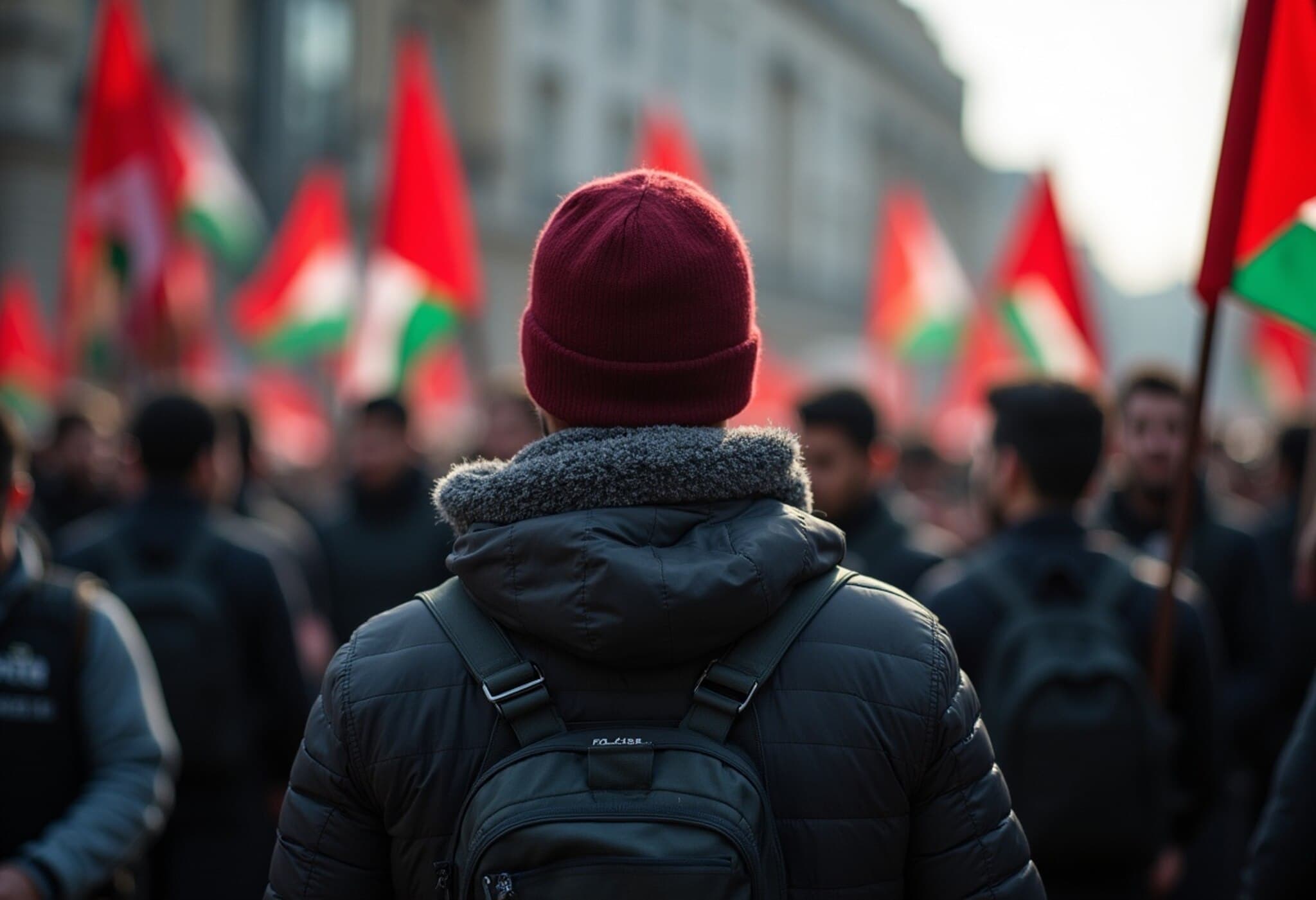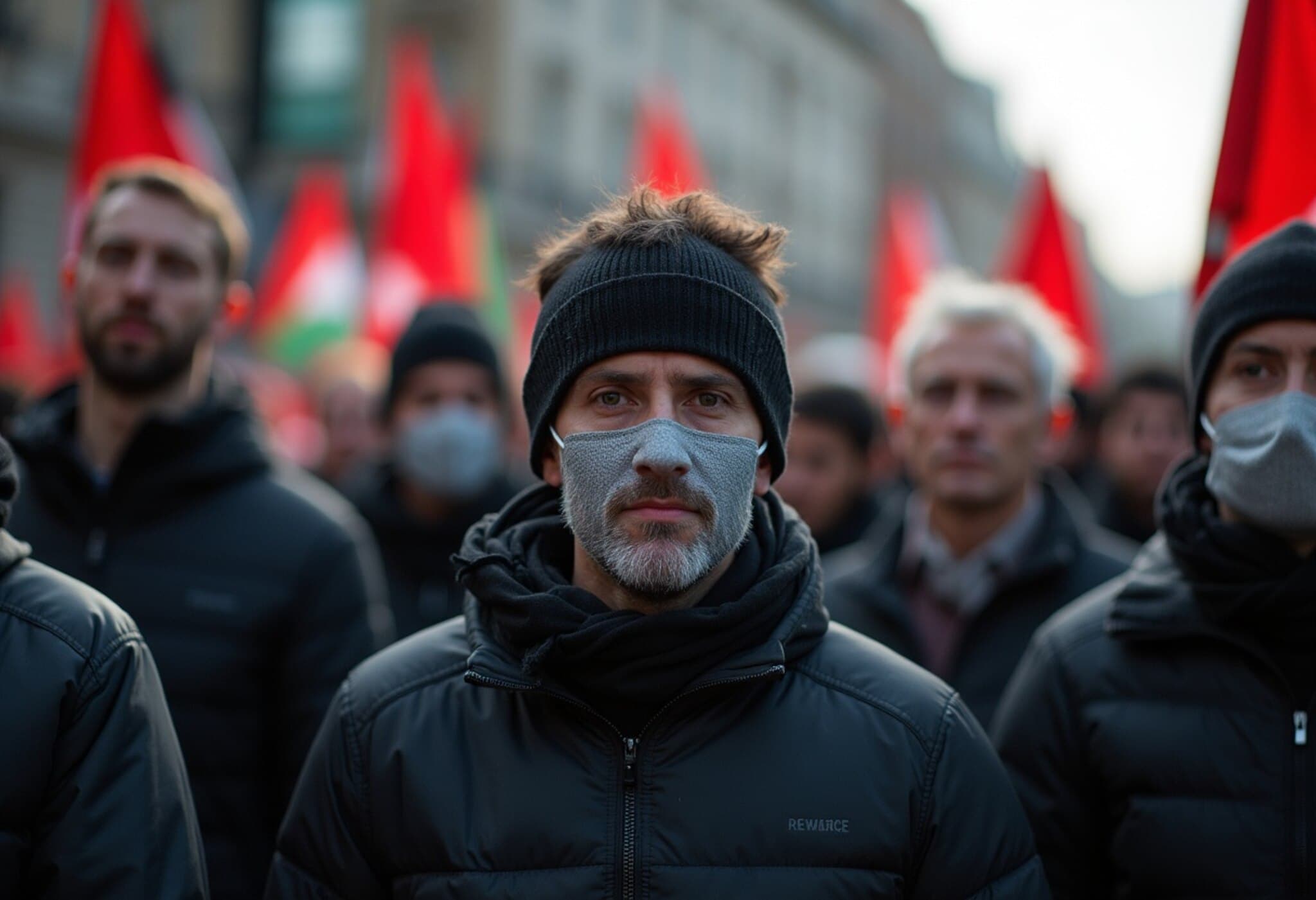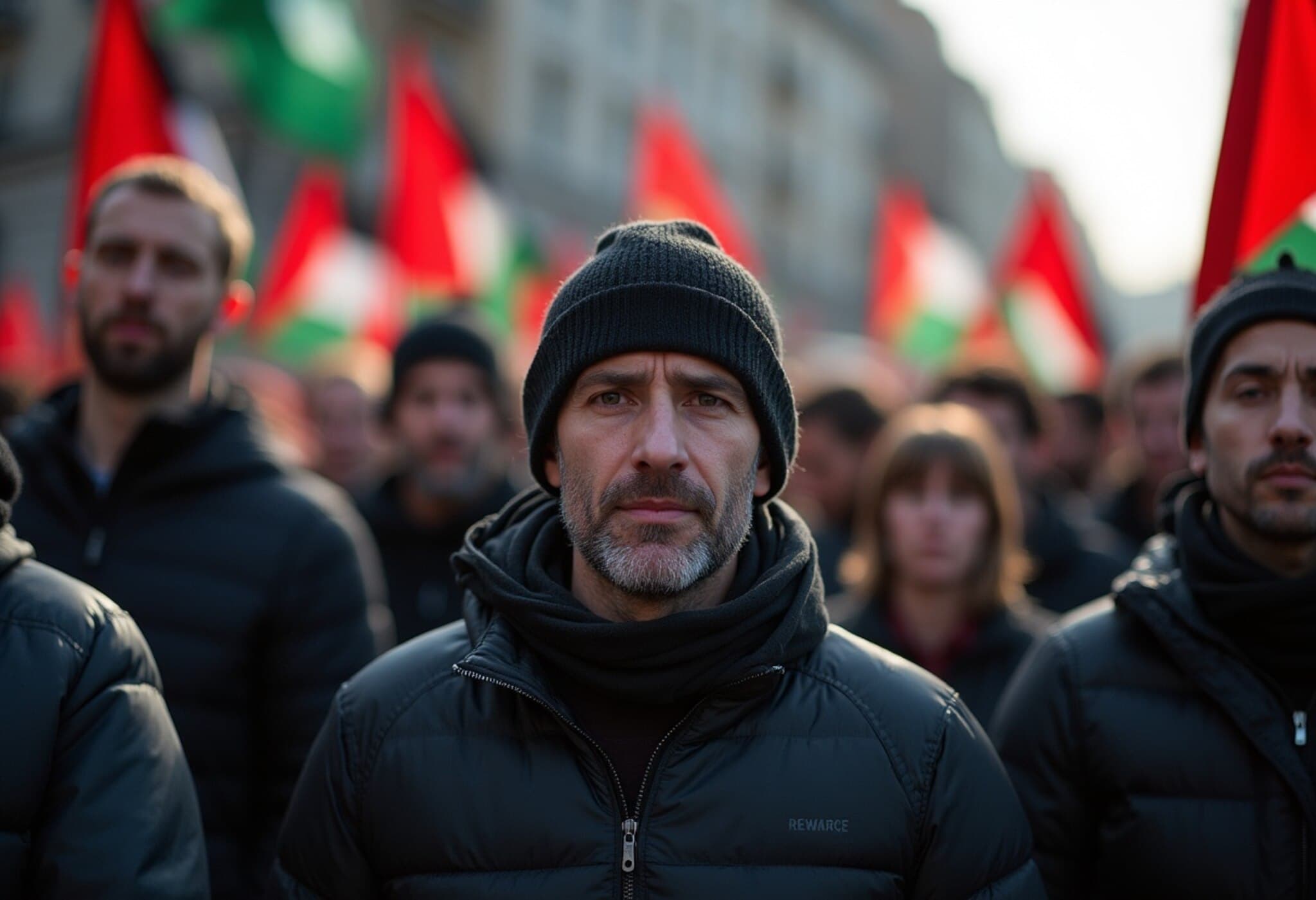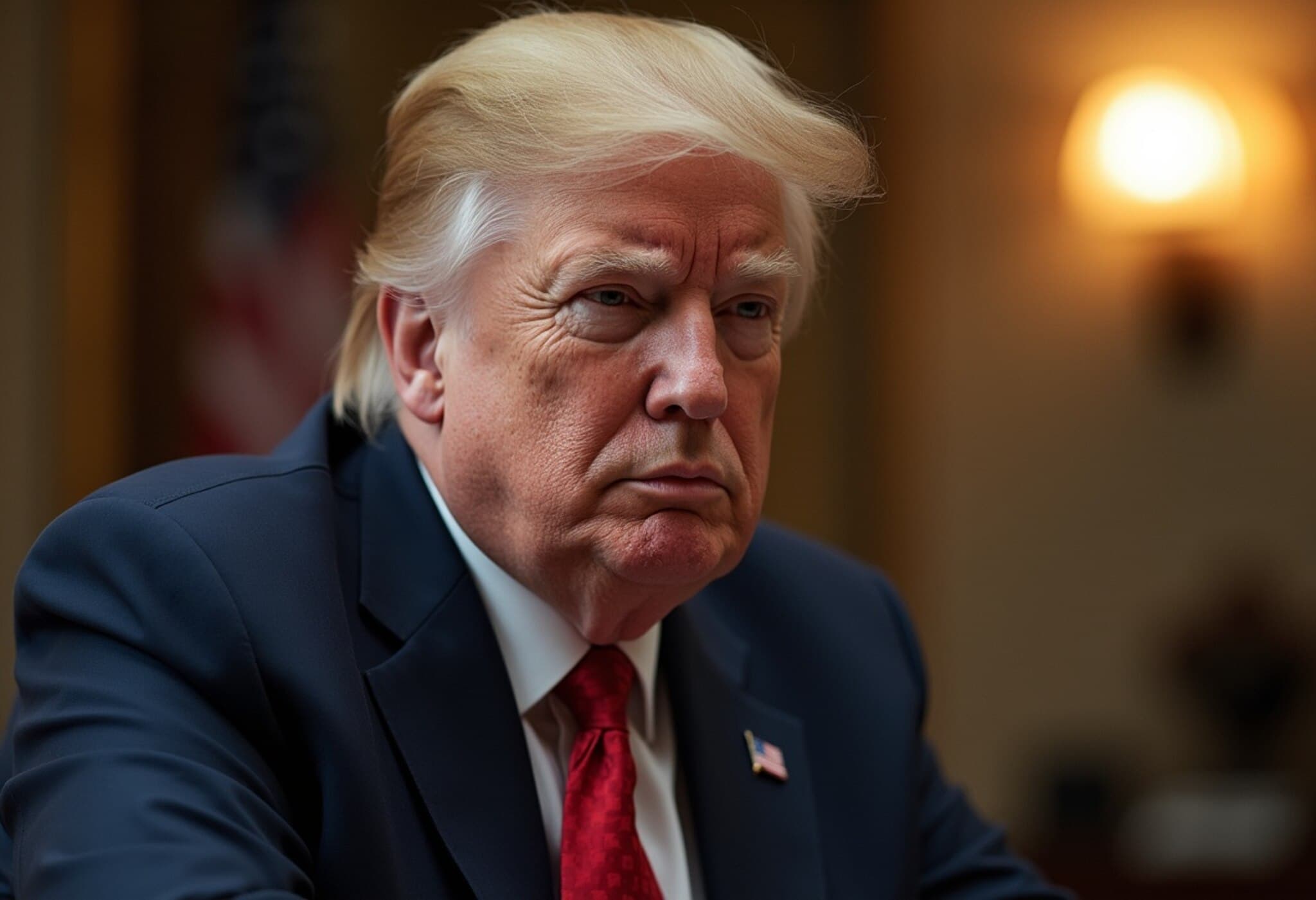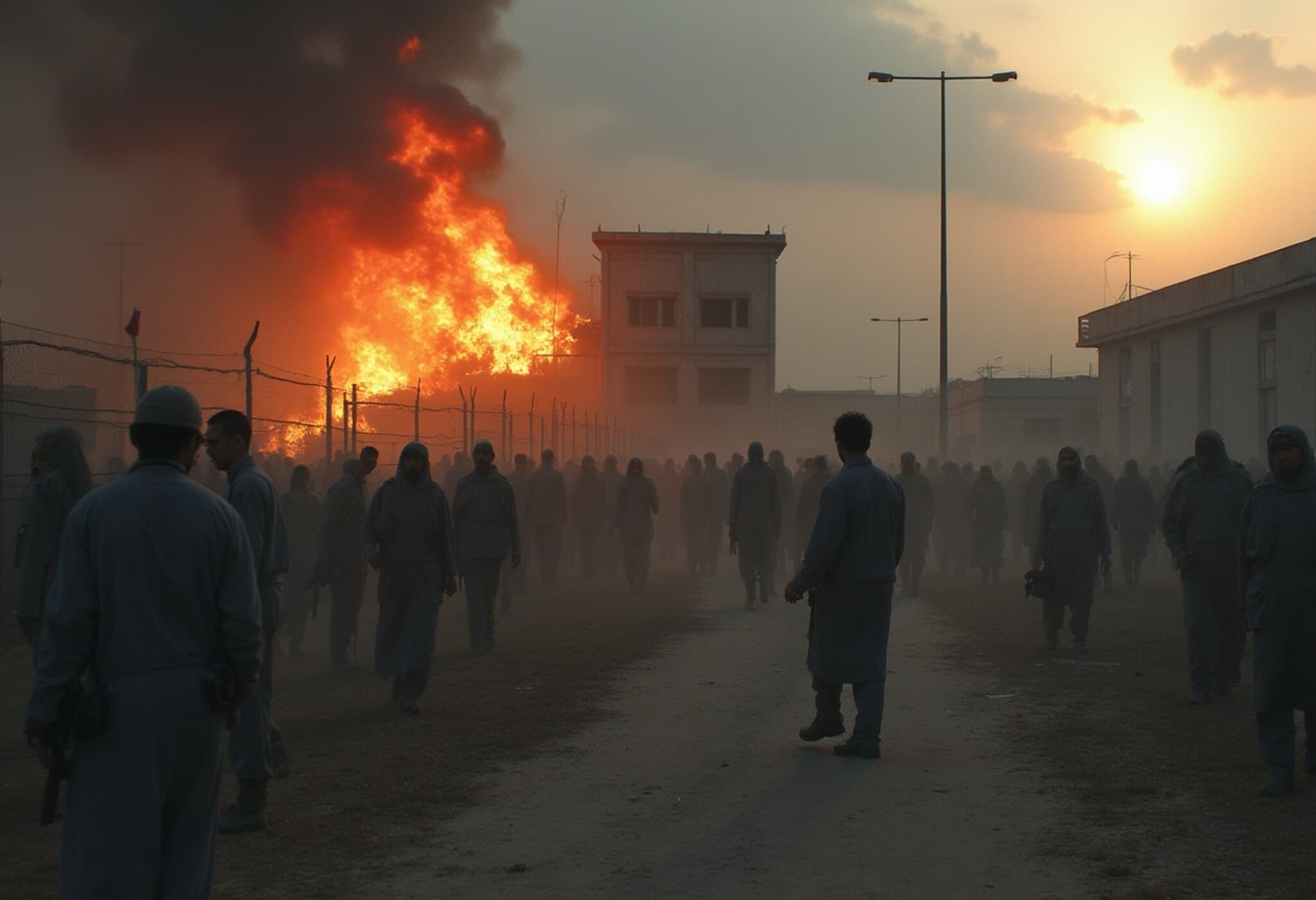Mass Arrests at London Protest Backing Banned Palestine Action
On July 5, 2025, London’s iconic Parliament Square became the stage for a tense demonstration resulting in the arrest of 42 activists supporting the recently banned group, Palestine Action. The protest, which was held under the shadows of statues of Mahatma Gandhi and Nelson Mandela, two towering figures synonymous with peaceful resistance, marked the second consecutive weekend of rallies opposing the UK government’s designation of the group as a terrorist organization.
Context Behind the Tensions
The UK government proscribed Palestine Action following a daring incident on June 20, in which activists broke into the Royal Air Force’s Brize Norton base in Oxfordshire. During this event, the group vandalized two military aircraft with red paint and crowbars, in an effort to spotlight what they describe as contentious British military support for Israel amid the ongoing conflict in Gaza.
Authorities estimate the damage caused amounted to approximately £7 million ($9.4 million). Consequently, four individuals aged between 22 and 35 have been formally charged with conspiracy to commit criminal damage and entering a prohibited area with intent prejudicial to UK interests, scheduled to appear at the Central Criminal Court on July 18.
Legal Ramifications and Police Response
The group’s proscription under the Terrorism Act 2000 carries severe consequences, including potential prison sentences up to 14 years for membership or acts of support, such as chanting slogans, wearing related apparel, or displaying flags and banners associated with Palestine Action.
At Saturday’s protest, police swiftly moved to detain demonstrators engaging in these expressions, leading to 42 arrests—41 for supporting a proscribed organization and one for common assault. Dramatic scenes unfolded as some protesters laid down in peaceful resistance, only to be physically carried into waiting police vans.
Broadening the Political Landscape
The crackdown highlights the delicate balance governments face between protecting national security and safeguarding the right to protest. This is especially pertinent in the context of British foreign policy and its military involvement in international conflicts, a subject provoking passionate debate and activism worldwide.
Demonstrations supporting Palestine Action also took place in several other UK cities including Manchester, Cardiff, and Londonderry, signaling a wider network of solidarity and dissent.
Expert Insight: The Challenge of Defining Terrorism and Free Speech
Legal experts point out that the UK’s broad categorization under the Terrorism Act often raises complex questions about where activism ends and terrorism begins. Dr. Samantha Green, a specialist in UK counterterrorism law at King's College London, notes, “The inclusion of groups like Palestine Action under terrorism legislation reflects a shifting paradigm where the state views direct action increasingly as a security threat. This can have a chilling effect on legitimate political dissent if not carefully scrutinized.”
Moreover, the prominence of protests near statues of icons famed for nonviolent civil disobedience evokes a symbolic contrast—highlighting debates about the most effective and ethical means of resistance in democratic societies.
What Lies Ahead?
- The upcoming court appearances of those charged will test the legal boundaries concerning activism and national security concerns in the UK.
- Public discourse is likely to intensify regarding military support policies and the state’s response to civil unrest.
- Continued protests suggest that the issue remains a hotbed of political tension, with implications for governance, civil liberties, and foreign relations.
Editor’s Note
This wave of arrests in London underscores the complex interplay between activism, state security, and legal frameworks. While governments have a duty to protect infrastructures and citizens, ensuring that such protections do not unduly suppress legitimate protest is critical to preserving democratic values. Observers and policymakers alike should watch closely how the UK navigates these tensions, as the outcomes could set precedent for handling politically charged activism amid global conflicts.

